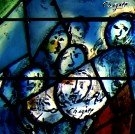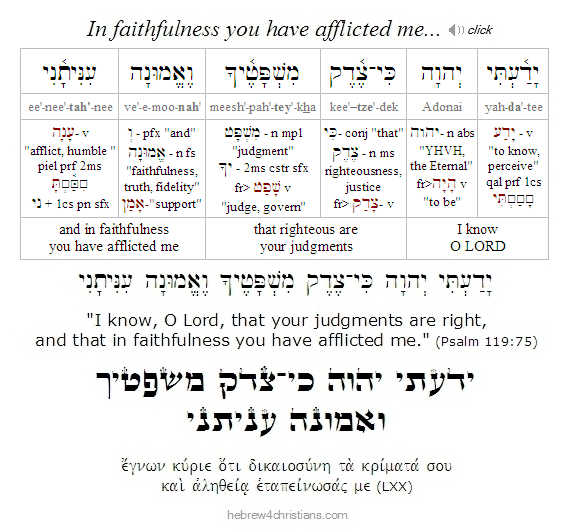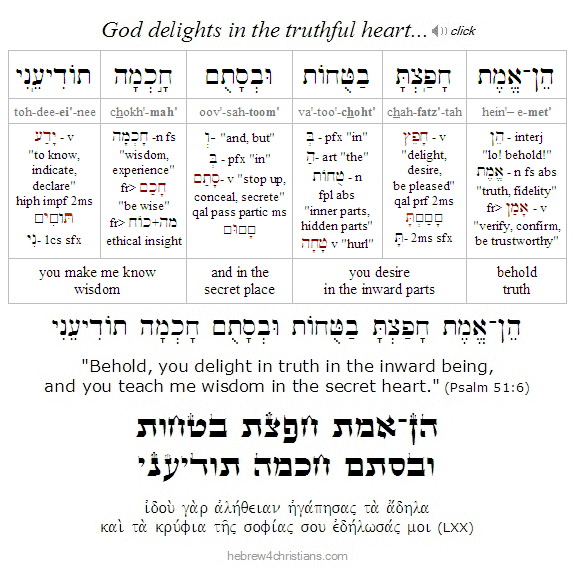|
There is a gap between the "real" and the "ideal," between our present sense of exile and our hope that one day we will be in our heavenly home; there is an inherent and ongoing dualism we experience as we sojourn through our days. On the one hand, if we make time to reflect on what is "real," we will eventually encounter the "Parmenidean" realm of "being," that is, the totality of sheer existence, the inescapable presence that surrounds and pervades any "thing" whatsoever: the "ground" of existence; the timeless sense of unity, perfection, and so on. The heart's response to this awareness is humble acceptance - to surrender to all that is -- in wonder over the miracle of consciousness and the sheer gift of life itself. The "real" is what "is" and that is a monolithic mystery...
On the other hand we encounter the everyday "Heraclitean" flux of life, the experience that all things flow (ŽĆ╬¼╬ĮŽä╬▒ ß┐ź╬Ąß┐¢), and that we are all part of the endless river. The only "universal" is change itself, or the inscrutable process of becoming. The heart's response is to engage life, to learn to swim, and to go with the flow, however, since everything is in process, fighting injustice and seeking good outcomes are essential, and therefore there is a duty to refuse to passively be carried away in the drift, indifferent to the suffering and needs of others. We seek stability within the ongoing flux by identifying "universals" or principles, and it becomes our responsibility to improve the world, to lessen suffering, and to hold to whatever ultimately "is" -- the substance (or substratum) of everything, is good and worthy of our struggle...
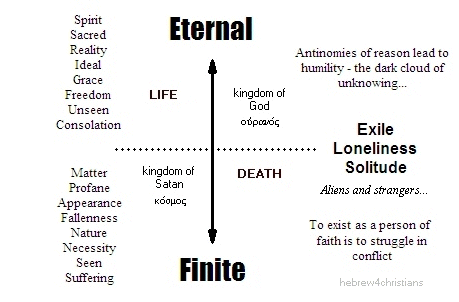 |
As a matter of practical living, this dualism shows up in our hearts as a disposition or temperament that arises when we encounter seemingly pointless suffering in our lives (or in the lives of others). Even if our theology encourages us to "see through" the dark cloud of suffering and accept its ultimate resolution, misery and chronic pain defy our best explanations, often leaving us speechless, in the whirlwind of mystery and confusion, hoping to find the will to believe despite our inner fracture or the crucifixion of our world...
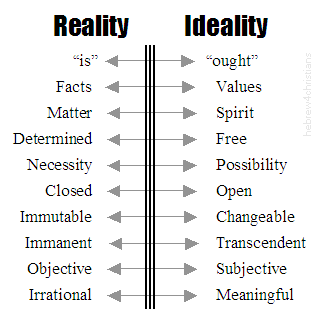 |
Friedrich Nietzsche, who decidedly rejected the idea of a "two-storied" view of reality, once said that he could accept any "what" of suffering if he had a "why," though that dialectic is never really finished, since the faith to regard suffering as purposive or pointless is an ongoing, and ultimately terminal, struggle... Of course having a sense of meaning, a "story" that accounts for your suffering is important, yet it is a story being told as you live it, and you will have days of fortitude as well as days of weakness... As Kierkegaard once said: "Truth is not something you can appropriate easily and quickly. You certainly cannot sleep or dream yourself to the truth. No, you must be tried, do battle, and suffer if you are to acquire the truth for yourself. It is a sheer illusion to think that in relation to the truth there is an abridgment, a short cut that dispenses with the necessity for struggling for it."
The question as to whether suffering and death are "essential" to what is real or merely "accidental" is an academic one, but when the issue comes up-close and personal through intimate afflictions, the question becomes a matter of the heart answered by how we choose to respond, especially when our best explanations (or rationalizations) fail us... For most people this "answer" to the problem of suffering is to deny there is any problem at all, as Blaise Pascal once ironically noted: "Being unable to cure death, wretchedness, and ignorance, men have decided, in order to be happy, not to think about such things" (Pensees). Such collusion to deny the reality of suffering is ironically exposed in our addictions, our obsessions, and in our constant use of various "tools of distraction." Denying the reality of death is ultimately foolish, however, since it makes a deal with the devil to become "comfortably numb" at the expense of our very souls... "This your last chance. After this there is no turning back. You take the blue pill, the story ends. You wake up in your bed and believe whatever you want to. You take the red pill, you stay in Wonderland, and I show you how deep the rabbit hole goes. Remember, all I'm offering is the truth. Nothing more" (The Matrix: 1999). The ancient sage Socrates would unhesitatingly have swallowed the red pill: "It is better to be a human being dissatisfied than a pig satisfied; better to be Socrates dissatisfied than a fool satisfied. And if the fool, or the pig, is of a different opinion, it is only because they only know their own side of the question" (J.S. Mill: Utilitarianism, 1861).
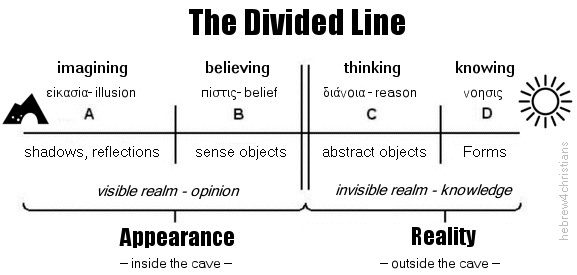 |
Another response to the problem of mortal suffering is to try to "fix" or circumvent it through various medical technologies. Instead of accepting the age-old struggle of learning to suffer (and to die) well, the modern world creates another layer of denial - pretending that death and disease are a problem that can be resolved by palliative technology and science. At the very least, medical technologies supply "end of life" care that is engineered to hide the truth from the culture at large... The rise of "trans-humanism" is a romantic idealization of this view.
A characteristically spiritual approach seeks to transform suffering and death to be the means of sanctification - a sorrowful yet necessary prelude to deliverance and ultimately to salvation. Suffering is the price we pay for the blessing of existence, and God uses it to educate or rectify the soul for the perfections of heaven. Now while such a "soul building" theodicy may rationalize some of the common hardships of life in this world, it rings a bit hollow when we consider certain forms of suffering, such as the death of a very young child or the unjust and senseless murder of a bystander in a bad neighborhood... It makes a mockery of the pain we feel in grief, by acts of terrorism, though political tyranny, and so on.
Often enough these different approaches to suffering are intermixed within the heart, as, for example, when a person receives a terminal medical diagnosis but then wrestles through accepting what is happening yet also doing whatever is possible to fight for life. This struggle arises when the intellectual "problem of evil" becomes a mystery of the heart, and the person both surrenders and yet wrestles over God's role in the darkness of their unknown. This is a sacred place , the "garden of pain," where we face the essential truth of our own vulnerability and mortality, our suffering and our fear, and yet it is precisely there that we cry out to God for the strength to accept his will without hatred and despair...
Intellectually we may be tempted to regard our suffering as the way to reconcile our sins with God's justice (karma), but this is not the message of the gospel, of course, which proclaims Yeshua was made "sin for us" to bring us forgiveness and life (Rom. 4:5; 1 Pet. 3:18; 2 Cor. 5:21; Rom. 8:1). Indeed Yeshua sacrificed on our behalf "reconciles" God's justice with the truth of his love (Psalm 85:10; 89:14). That said, we return again to the realm of paradox, since though we are not forensically punished so that we are made good, we are "corrected" by our Heavenly Father as we partake of suffering to be conformed to the image of Messiah (Heb. 12:5; Col. 1:24; Rom. 8:17; 8:29; 1 Cor. 15:49, etc.). The divine exchange given at the cross is the miracle of substitutionary atonement - and yet we still suffer in this life, we still might wonder if there be a hidden message of rebuke -- even while we are assured that all things (including our afflictions) work together for our ultimate good and for the glory of God.
Hebrew Lesson:
Psalm 119:75 Hebrew reading lesson (click):
It is an "already-not-yet" mode of existing, friend, as we partake of the heavenly gift and promise and yet await its consummation in the future... Meanwhile while God does not take away those pains and fears common to all men in this fallen world, he does impart courage produced by the Holy Spirit that yields conviction of His love and presence. Even if the world totters and shakes we find comfort because the LORD is near.
There is always a gap between what we are and what we could be, between the "is" and the "ought," and between the real and the ideal in our lives... Our conversion imparts to us a new spiritual nature, but we still must struggle through our deep inadequacies so that we might learn to truly love God and others (Shema). God graciously saves us by faith, and he sanctifies us the selfsame way, though in the latter case this means learning to keep focus, to persevere, and persist in hope - despite the shortfall of our lives. So where are you going today? Are you keeping faith in God's promises for your life? Are you catching up with the miracle of what God has done for you?
This dualism of life shows up within our hearts as we wrestle with our faith and with our "double-mindedness," that is, the ambivalence that results from not having our minds made up. On the one hand, we need to confess the truth of our radical sinfulness, our depravity, our brokenness, and so on, while on the other we must learn to know ourselves as the "beloved" and to find faith that God's blessing indeed belongs to us -- that Yeshua gave his life for us -- despite ourselves. We have to be willing to take God's new name for us and believe that God has transformed our deepest nature for eternal good. We have to be renamed from "Jacob" to "Israel," and yet we know ourselves as both... In other words, we must learn to "put on" the new nature and to "put off" the carnal reasoning of our former life. The answer for us is found in the word "miracle," as God in great mercy and compassion regenerates us, comforts us, and then guides our way back to the truth of his salvation.
ūöųĄū¤ųŠūÉų▒ū×ųČū¬ ūŚųĖūżųĘū”ų░ū¬ų╝ųĖ ūæųĘūśų╝ų╗ūŚūĢų╣ū¬
ūĢų╝ūæų░ūĪųĖū¬ų╗ūØ ūŚųĖūøų░ū×ųĖūö ū¬ūĢų╣ūōų┤ūÖūóųĄūĀų┤ūÖ
hein - e┬Ęmet ┬Ę cha┬Ęfatz'┬Ęta ┬Ę va┬Ętoo┬Ęchot
oov┬Ęsa┬Ętoom ┬Ę chokh┬Ęmah ┬Ę to┬Ędee┬Ęei'┬Ęnee

"Behold, you delight in truth in the inward being,
and you will teach me wisdom in the secret heart"
(Psalm 51:6)

Hebrew Lesson:
Psalm 51:6 Hebrew reading lesson (click):
Often the only prayer we have is "Help, LORD!" (ūóū¢ūĢū© ū£ūÖ ūÖūöūĢūö). I use this one on a daily basis, that is, whenever I am confronted with the truth of my condition... Living in the "already-not-yet" state of redemption is a soul-building venture that helps us to acquire the precious middah (quality) of patience: "In your patience possess ye your souls" (Luke 21:19). Testing produces endurance (Rom. 5:3), but God surely is faithful "to keep you from falling, and to present you faultless before the presence of his glory with exceeding joy" (Jude 1:24). May He come speedily, and in our day. Amen.
Some Related Topics:
|

